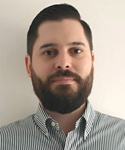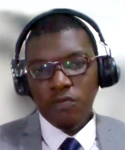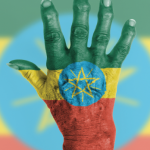He also pointed out that the global burden of disease is shifting, with the relative impact of premature mortality decreasing and the impact of disability increasing. This is pertinent to many areas of rheumatology, in which early diagnosis and adequate treatment can radically reduce an individual’s lifetime disability burden. But, according to Dr. Murray, many public health officials do not seem to be aware of this shift.
“Health systems really need to adapt to the rise of [non-communicable diseases] and disabilities,” said Dr. Murray. “There has been a really profound shift—particularly in the middle [sociodemographic index] countries.
“But health systems don’t seem to keep up with the epidemiological shift. We’re seeing this problem, especially in the middle [sociodemographic index countries], where progress for delivering interventions for non-communicable diseases is much slower than the changes that you see,” he added.
Young Leaders
At another session, the Future of Rheumatology Around the Globe, several early career rheumatologists, representing the ACR, the Pan-American League of Associations for Rheumatology (PANLAR), the European Alliance of Associations for Rheumatology (EULAR), the African League Against Rheumatism (AFLAR) and the Asia Pacific League of Associations for Rheumatology (APLAR), shared their perspectives about some of the most important challenges facing the rheumatology community, including many issues surrounding access to care.
Sebastián Herrera Uribe, MD, an associate professor of rheumatology at Universidad CES in Medellin, Colombia, noted that although rheumatologists and treatments could be found in his city, most rural communities lacked access to such care and may only be served by a nurse practitioner. Telemedicine can be a partial strategy to help deliver care to these areas, but it isn’t practical in every situation, he noted.
“We have to engage with local governments and local healthcare policy to bring rheumatology to the forefront,” Dr. Uribe added. “If we don’t participate and don’t do our advocacy work and don’t do the education part, both for our communities and for our governments, nobody will. And probably people who aren’t knowledgeable about rheumatology will make the decisions.”
The number of rheumatologists available is also a key challenge in his region, said Uyiekpen Ima-Edomwonyi, MD, a consultant rheumatologist at Lagos University Teaching Hospital, Nigeria. The rheumatologists who are available may become overburdened and burned out, he remarked. He emphasized the need to encourage more medical professionals to go into rheumatology while also aiding the support specialties to better assist in patient education and overall care.





